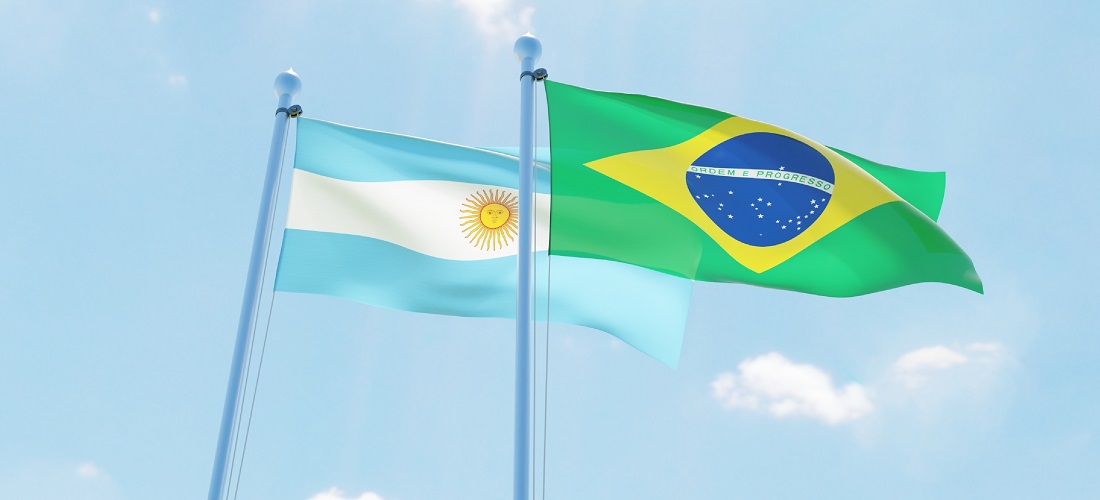
China is taking up the trade space that used to belong to Brazil in Argentina
Jan, 28, 2022 Posted by Gabriel MalheirosWeek 202204
In 2021, Brazil unquestionably lost the status of the largest exporting country to Argentina. Following a technical tie in 2020, China has now surpassed Brazilian sales to Argentina by more than US$ 1 billion. According to data released by the Argentine government, which has kept a trade database since 2002, the achievement is unprecedented.
In the previous two years, China had already appeared ahead of Brazil in a few months. However, in the entire year of 2020, the difference in the income generated by exports to Argentina in the two countries had been less than US$ 10 million, leaving both China and Brazil with an equal share of 20.4% of total Argentine imports. that is, US$ 42.4 billion each. The Chinese advantage only became clear last year.
Having shipped a total worth US$ 13.5 billion shipped last year to the River plate country, the Chinese increased the pace of exports and scored 21.4% of all Argentine foreign purchases in 2021, a clear advance compared to the 14.3% it had in 2011.
Brazil, on the other hand, increased shipments to its neighbor last year, though not at the same rate. Brazil’s participation has dropped since the last decade. Shipments accounted for US$ 12.4 billion, corresponding to 19.6% of Argentine imports in 2021. In 2011, the country accounted for 30% of Argentine’s foreign purchases. The data come from Indec, the Argentine government’s official statistics institute.
Last year, Chinese exports to Argentina increased by 56.3 %, a much faster rate than the average of Argentina’s total imports. Brazil’s exports to its neighboring country have increased at a slower rate of 43.3%. Vaccines, undoubtedly catapulted by Covid-19, are among the main products exported by China to Argentina in 2021. Regardless, the data show that China’s growth trends are not limited to the current scenario. It is, in fact, a trajectory that has been taking shape for more than a decade.
Prior to dethroning Brazil, China had surpassed the United States as Argentina’s second-largest supplier of goods in 2010. Argentina imported US$ 6.1 billion from Americans and US$ 7.7 billion from Chinese in that year. Brazil retained its position as the world’s largest exporter, with a total value of US$ 18 billion. The following year, Brazilians reached a peak in exports to their neighbor, earning a total of US$ 22.2 billion, more than doubling the US$ 10.6 billion sold by the Chinese.
But, over the next ten years, history began to change. Both Chinese and Brazilian shipments experienced ups and downs, mirroring the Argentine economy’s roller-coaster behavior. However, as the economy recovered, China became more adept at the trade game and reaped the benefits of seeing its products more readily accepted by Argentina. The score differential between the two countries narrowed until the technical tie in 2020 when the Chinese sold US$ 8.66 billion to the Argentines and the Brazilians sold US$ 7.6 million less. Brazil was left behind by China’s new and more aggressive start last year.
It’s worth noting that China isn’t the only country occupying what was once Brazil’s economic domain in the region. According to last year’s data, other Asian countries such as Indonesia, Thailand, and South Korea saw their exports to Argentina increase above the average. These correspond to smaller values that, when added together, form a representative share indicating that Brazilians will face stiff competition to reclaim their former privileged position. Thailand’s imports totaled US$ 1.6 billion in 2021, up 54% from the previous year, according to Indec. Korean imports totaled US$ 648.3 million, 77.4 % more than 2020.
Source: Valor Econômico
To read the full original article please visit:
-
Ports and Terminals
Jan, 06, 2023
0
Port of Vitoria completes unparalleled vehicle import landing
-
Grains
Sep, 22, 2021
0
Wheat: transgenic production in Argentina could be a ‘shot in the foot’, says consultant
-
Ports and Terminals
Dec, 15, 2023
0
Port sector to hold 20 auctions by 2024
-
Trade Regulations
Nov, 13, 2019
0
Guedes defends economic integration and free trade with China



